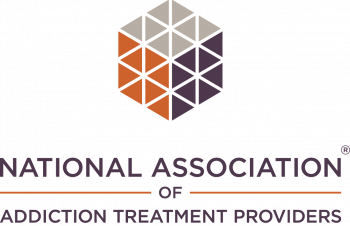Mental health and substance use disorders often intersect. One of the mental health conditions that are often connected with substance abuse is codependency. When someone is in this situation/relationship, it makes it difficult to break free from the cycle. It’s critical to find a treatment that focuses on overcoming codependency so that if substance abuse is an issue, that can get resolved, too.
Fortunately, TruHealing Gaithersburg understands just how complicated interpersonal relationships and addiction can be. Thus, we offer several means of addressing codependency to help both the individual in need of drug addiction treatment and their friend, family, or loved one.
What Is Codependency?
When thinking about overcoming codependency, it’s crucial to understand this condition. Codependency is a behavioral and emotional problem that is sometimes passed down from generation to generation. It’s not necessarily a genetic condition but a learned behavior.
Codependency affects your life in several negative ways and inhibits people from enjoying a healthy relationship. Some of the signs of this condition include:
- Having a hard time making decisions
- Struggling to identify your emotions
- Craving the approval of others more than your self-esteem
- Difficulty establishing boundaries
- Trouble communicating your desires
These are a few of the signs of codependency.
How Codependency Works
In a codependent relationship, you usually have a person who has substance use disorder, and the codependent family member loved one, or co-worker. The codependent person covers up for the person struggling with addiction to drugs or alcohol. One of the reasons is because they wrap their identity and self-esteem up in the identity of the other person. Due to their insecurity, they give of themselves sacrificially, because they think they can save the person from harm. However, this usually doesn’t work.
When thinking about overcoming codependency, it’s crucial to know the players involved. In a codependent relationship, there is the codependent one, called the enabler. Also, you have an addicted person who is referred to as the manipulator. The manipulator uses the enabler to try to get their way or extort money for their habit. Plus, they use them to hide their substance use.
On the other hand, the enabler has their identity wrapped up in the other person, so they feel compelled to hide the other person’s problem, which ends up helping them with it.
Codependency And Substance Abuse
The person in a codependent relationship faces various difficulties, such as:
- The manipulator (who is the same person with substance use disorder) tries to get the enabler to give them money, medication, or other things so that they can keep up with their habit.
- The manipulator will continue abusing drugs as long as someone continues to enable them.
- The enabler loses much of their identity and self-worth through the relationship.
- The enabler is sometimes a victim of physical or emotional abuse.
Overcoming Codependency
Overcome codependency is not easy but can be done with the help of trained professionals and evidence-based therapies. At TruHealing Gaithersburg, our caring therapists offer therapies designed specifically for those struggling with mental health issues and living in a substance abuse environment. You’ll discover the joy of finding your own identity as you take the pathway that leads to inner healing.
We offer a wide variety of treatments to fit your lifestyle. Our intake coordinator will assist you in finding the ideal treatment program. Some of the programs we offer include:
- Intensive outpatient program (IOP)
- Partial hospitalization program (PHP)
- Outpatient treatment program
- Alumni program
Don’t let codependency and substance abuse rob you of a joyous life. Now that you know more about overcoming codependency, you can find the pathway to happiness. Just reach out to a quality rehab center by contacting us at (833) 625-0398 today; we’ll walk beside you every step of the way.









